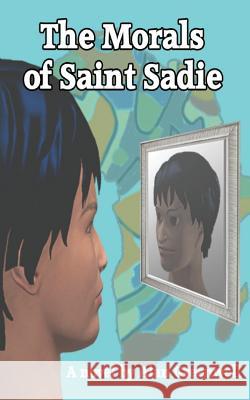The Morals of Saint Sadie » książka
The Morals of Saint Sadie
ISBN-13: 9780993523595 / Angielski / Miękka / 2016 / 252 str.
Deceit, theft and worse, but all in order to make the world a better place. How could Sadie have believed that stealing expensive paintings to fund girls' education in Africa was morally defensible? This novel is about art, about the funding of girls' education in the developing world -- and especially about morality. Sadie thought she was so upright but found herself slipping into a world where deceit, theft and worse seemed unavoidable. Later, marooned on another continent, she reflects on how her downfall came about and on how to redeem herself. At first she blamed her Grandfather for her problems. That was unfair; he was simply pursuing his own passions. Sadie realised too late that it was she who was at fault. At twenty three, she was young and too easily swayed. She used to think she was so good - morally that is. Her best friend Mel would have stopped her, had she confided in her. Now she is marooned on another continent, asking herself if she will ever see Mel or her Grandfather again. As she writes, four years after the events, she asks herself why she didn't stop herself from sliding deeper and deeper. Each step down seemed acceptable. Add them all together and you have her now, appalled by herself and marooned far from her homeland. She decided to write this as an act of contrition. She's writing it for her children, if she ever has any. This is Alan Greenwell's second novel.
Deceit, theft and worse, but all in order to make the world a better place. How could Sadie have believed that stealing expensive paintings to fund girls' education in Africa was morally defensible?This novel is about art, about the funding of girls' education in the developing world -- and especially about morality. Sadie thought she was so upright but found herself slipping into a world where deceit, theft and worse seemed unavoidable. Later, marooned on another continent, she reflects on how her downfall came about and on how to redeem herself. At first she blamed her Grandfather for her problems. That was unfair; he was simply pursuing his own passions. Sadie realised too late that it was she who was at fault. At twenty three, she was young and too easily swayed. She used to think she was so good – morally that is. Her best friend Mel would have stopped her, had she confided in her. Now she is marooned on another continent, asking herself if she will ever see Mel or her Grandfather again. As she writes, four years after the events, she asks herself why she didn't stop herself from sliding deeper and deeper. Each step down seemed acceptable. Add them all together and you have her now, appalled by herself and marooned far from her homeland. She decided to write this as an act of contrition. She's writing it for her children, if she ever has any. This is Alan Greenwell's second novel.











